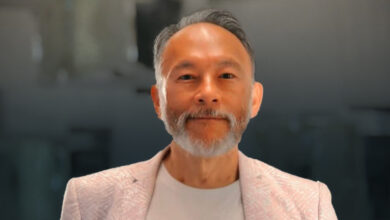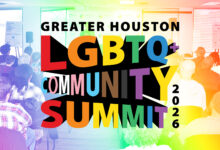
The National LGBTQ Task Force, a social-justice nonprofit, is mobilizing queer folks across the country to get counted in the 2020 Census.
In honor of Census Day on April 1, the Task Force is now hosting a series of educational webinars, online office hours, and phone calls to teach LGBTQ people how to fill out the Census form. These events, including registration information, can be found online at queerthecensus.org.
“Filling out the Census is a critical component in building our collective power to fight for our rights—including the right to be fully represented in the Census count,” said Meghan Maury, the Task Force’s policy director.
Every ten years, the United States Census Bureau is required to conduct a population count of the nation. Data from the Census provides the basis for distributing more than $675 billion in federal funds annually to communities across the country. This funding supports vital programs that impact housing, education, transportation, employment, healthcare, and public policy.
Historically, the Census has undercounted hundreds of thousands of marginalized people, including queer folks. To combat this, the Task Force since the 1990s has pushed for more Census questions that would document the size of the LGBTQ community. In 2010, the organization launched the Queer the Census campaign to help the LGBTQ community understand the importance of Census data collection.
For the first time, the 2020 Census allows people living in the same household to mark themselves as same-sex partners or spouses. However, the Census does not explicitly ask whether and individual identifies as LGBTQ—thus leaving out all queer folks who are not living with a same-sex partner.
“While the Census doesn’t ask questions about sexual orientation or gender identity, it is still vital for us to be counted,” Maury said. This is because LGBTQ folks are more likely to need access to the programs that are funded based on Census data.
Queer people—especially women, bisexual people, and transgender people—are more likely to live in poverty, according to a study by the Movement Advancement Project. And, 40 percent of young people experiencing homelessness identify as LGBTQ.
“The Census helps LGBTQ communities access billions in federal funding for social programs, helps us build political power, and helps us enforce civil-rights protections,” Maury said.
In addition to its Queer the Census campaign, the Task Force has partnered with other organizations, including the National Queer Asian Pacific Islander Alliance, National Black Justice Coalition, and PFLAG, to ensure communities that the Census has historically missed have the information and resources they need to get counted.
The Task Force has also signed on to the Census Counts campaign, which offers education, training, organization, and outreach to ensure that hard-to-count communities aren’t missed in the 2020 Census.
For more information on the National LGBTQ Task Force’s Queer the Census campaign, visit thetaskforce.org/queerthecensus.html. To fill out the 2020 Census, go to 2020census.gov.










